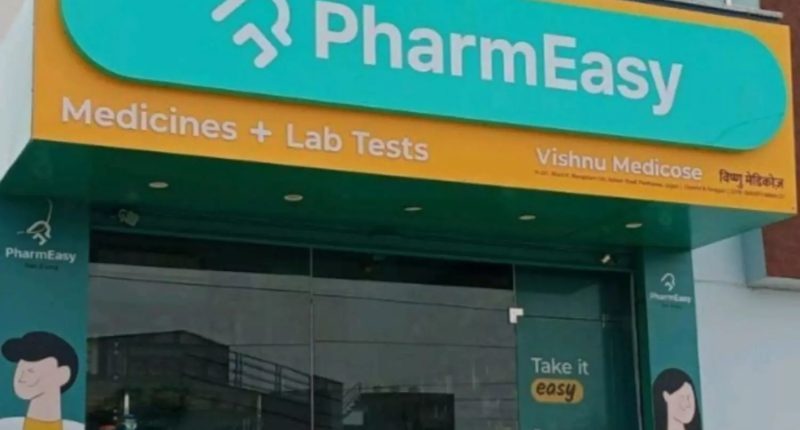API Holdings, the parent company of PharmEasy, one of India’s leading online pharmacies, has now experienced a dramatic downturn in its valuation. Once valued at a lofty $5.6 billion in 2021, the company’s worth has now been slashed by 92% in totality, now plummeting to just $458 million according to recent filings with the US Securities and Exchange Commission (SEC).
PharmEasy’s decline has been marked by a significant loss of confidence from its investors. Janus Henderson, a global asset management firm that first invested in the company during its Series F funding round in 2021, has drastically reduced its valuation of PharmEasy by 91.8%. Initially, Janus Henderson invested approximately $100 million, betting on the promising growth of India’s online pharmacy market. However, the firm’s recent filings indicate a stark reversal in fortune, with the value of its investment now reflecting a profound lack of confidence in PharmEasy’s future prospects. This comes on the heels of an earlier 90% valuation haircut in April 2023, during which PharmEasy managed to raise Rs 1,804 crore ($216 million) from a funding round led by Manipal Education and Medical Group (MEMG) and other existing investors.
Last year, in June 2023, the Mumbai-based firm defaulted on a Rs 3,500 crore ($421 million) loan from Goldman Sachs. This default marked a significant setback for the company. The loan had been intended to support PharmEasy’s aggressive expansion plans and was part of a broader strategy to fuel growth through both debt and equity. However, as market conditions deteriorated and the company’s financial health weakened, servicing this debt became increasingly untenable.
PharmEasy’s struggles with debt were compounded by its postponed plans for an initial public offering (IPO). The company had filed for an $843 million IPO in November 2021, aiming to capitalize on its rapid growth and strong market position. However, unfavorable market conditions forced the company to defer its IPO, leaving it with fewer options to raise the necessary capital to pay down its debt. As a result, PharmEasy found itself caught in a vicious cycle of mounting debt.
According to data from Redseer, PharmEasy’s market share has fallen dramatically from 33% in October 2022 to just 15% by September 2023. This decline has been accompanied by a corresponding rise in the fortunes of its competitors, particularly Tata 1mg, which has emerged as the new market leader with its market share increasing from 19% to 31% over the same period. Other key players in the e-pharmacy space, such as Flipkart Health Plus, Reliance-backed Netmeds, and Apollo, have maintained stable market shares in the range of 15-18%.
PharmEasy’s focus on profitability, which has included significant marketing cuts and other cost-saving measures, may have contributed to its shrinking market presence. While the company reported a 16% year-on-year revenue growth to ₹6,643 crore in FY23, this positive development was overshadowed by a sharp increase in losses, which surged by 30.5% to ₹5,211 crore.
The Tech Portal is published by Blue Box Media Private Limited. Our investors have no influence over our reporting. Read our full Ownership and Funding Disclosure →





